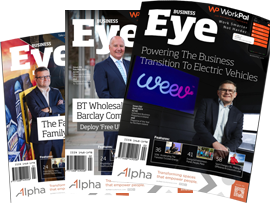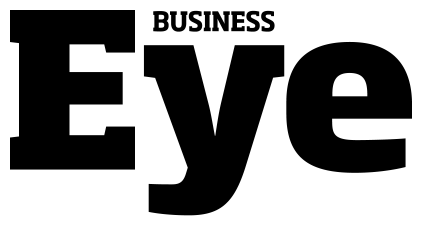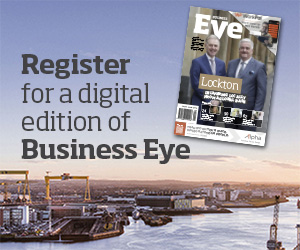On Brexit, 69% rejected a ‘hard’ border with 64% saying it was critical that any deal should protect the Common Travel Area with the Republic of Ireland.
Eight-five percent said Northern Ireland’s democratic deficit was having a ‘negative’ or ‘very negative’ effect on the regional economy.
Nearly nine out of ten respondents said the lack of an Executive was having a ‘negative’ or ‘very negative’ effect on business confidence, while 85% said that it is negatively impacting on business investment decisions.
Over 90% of local Chartered Accountants said that stalled devolution had a ‘negative’ or ‘very negative’ effect on the provision of public services (91%), and on Government spending decisions (93%).
More than eight out of ten – 84% – said that the political impasse is negatively affecting Northern Ireland’s position in Brexit negotiations.
The Economy
The Chartered Accountants Ulster Society Survey revealed a subdued sense of growth for the local economy in the year ahead. 45% expect slow growth (down from 60% in 2017). 29% said the economy will remain stagnant (up from 21% in 2017).
10% expect the local economy to contract (up from 6% in 2017) while 13% predict moderate growth in the year ahead (up from 12% in 2017).
The survey also showed that while most Chartered Accountants believe that the number of businesses in Northern Ireland in financial distress is mostly unchanged (46%), there is an increasing trend in those believing more businesses are experiencing difficulty (28%, up from 16% in 2017 and 2016).
Overall, a growing number of Chartered Accountants felt that the region’s economic outlook was poor over the coming year. 53% said that the outlook was fair (down from 58% in 2017); 35% said that the outlook was poor (up from 26% in 2017); Just 9% said that outlook for the year ahead was good (down from 11% in 2017).
Political uncertainty, Brexit and cuts in government spending were cited as the main negative factors for the economy. A squeeze in living standards, the rising cost of doing business and interest rate rises were also considered as negative factors.
The global economic outlook and the possibility of the implementation of direct rule were cited among the few positives for the local economy in the year ahead.
Brexit
On the issue of Brexit, 69% of respondents said it was critical that there should be no hard border with the Republic of Ireland. 64% said it was critical that any deal should protect the Common Travel Area with the Republic of Ireland.
Other important elements of any potential deal according to Chartered Accountants include free trade (particularly tariff-free) with the EU; maintaining free passporting rights; and protecting the benefits from EU membership for Northern Ireland’s agriculture sector.
77% believe that Northern Ireland will be more negatively impacted by Brexit compared to the rest of the UK. 8% felt that Northern Ireland would be more positively impacted.
Only 16% of respondents said that they have contingency plans in place for the UK’s exit from the EU.
Corporation Tax
A reduced rate of Corporation Tax in Northern Ireland was felt to be a missed opportunity with many respondents stating that ‘the ship has sailed’. The survey shows that while a Corporation Tax cut is still considered to be an important lever to support inward investment and economic growth, most respondents have lost faith that it will happen. 85% said that it is unlikely to happen in the next 3 to 5 years. 60% said that it will never happen.
Jobs, Skills & Wages
On the issue of jobs and skills, the survey showed that over half of respondents did not expect head count in their own organisations to change during 2018, with 27% expecting an increase in employment levels and 17% expecting a reduction. Two in every five of those surveyed said that their organisation was currently experiencing skills shortages.
The survey did predict a further squeeze on wages, with more than 63% expecting wage increases for the coming year to be below 2%, lower than the current rate of inflation (2.3%, Office for National Statistics, May 2018).
Comment
Niall Harkin, Chairman of Chartered Accountants Ulster Society which represents over 4,500 Chartered Accountants in Northern Ireland, said: “Our members are sending a strong message that they feel the democratic deficit in Northern Ireland has gone on too long.
“It is having a negative effect on the Northern Ireland economy, on local services and on Northern Ireland’s position in Brexit negotiations.
“We believe that Northern Ireland is a great place to live, and a great place to do business but there is considerable frustration and anger over what is happening on Brexit and the local political stalemate. The profession is urging local political parties to get back to work at Stormont to deliver good government for all our people. This is the strongest response from members that we have had in our ten years of running this survey.
“My colleagues are also delivering a firm and forthright message on Brexit. We don’t want to be disadvantaged, held back or impacted negatively whenever the UK leaves the EU. We have got to get real about the full range of issues that has to be confronted and overcome.
“Brexit is of massive historic significance. This most momentous change requires a joined up approach but that is absent without a Ministerial team operating at the Executive table. That is a dreadful shame and one which our members deeply resent and regret.
“We want practical solutions to protect businesses in any new trading environment. We need a realistic plan on how the border between Northern Ireland and the Republic of Ireland will be managed so that local businesses can begin to plan their way ahead.
“Northern Ireland has come a long way since the days of conflict and we also recognise that our local politicians have a very difficult job to do, but the current political impasse is leading to stagnation. Jobs, growth and people’s quality of life are at stake because of this uncertainty.
“We feel that Northern Ireland will be more adversely affected than other regions of the UK and we feel that avoidance of a hard border and maintenance of the Common Travel Area with the Republic of Ireland are absolutely critical for local businesses to survive and thrive.
“The business community in Northern Ireland is incredibly resilient, but there is a clear need for leadership, decision-making and clarity if local firms are to fulfil their potential and deliver jobs and growth for the people of Northern Ireland.”
Independent economist Maureen O’Reilly, who formulated and analysed the survey of Northern Ireland’s Chartered Accountants said: “The sense of frustration among members is really palpable in this year’s survey. These are 400 professional people working across every sector in the Northern Ireland economy and they are saying that economic growth here is slowing and that political uncertainty is having a detrimental effect.
“The impact of Brexit is naturally dominating member’s concerns and even in terms of corporation tax, there is a view that Brexit has pushed the potential for a lower rate of corporation tax in Northern Ireland into the ether.
“There are concerns over skills and some of the actions that members believe are needed include a more integrated education and training system, a greater focus on apprenticeships and the need for Brexit to accommodate skilled migrants”
Key findings in the survey include:
- 45% feel that the NI economy is growing slowly; 13% growing moderately; 29% feel the economy is stagnant; 10% expect the economy to contract.
- 85% feel that the lack of a functioning NI Executive is having a ‘negative’ or ‘very negative’ effect on the local economy.
[if !supportLists]· [endif]91% feel that the lack of a functioning NI Executive is having a ‘negative’ or ‘very negative’ effect on the provision of public services.
- 53% Feel the outlook for the NI economy in the year ahead is ‘Fair’; 35% feel the outlook is ‘Poor’ and 2% ‘Very Poor’; 9% say ‘Good’; and 1% ‘Very Good’
- 69% said it was critical that there should be no hard border with the Republic of Ireland as a result of Brexit. 64% said it was critical that any deal should protect the Common Travel Area.
- 16% said they have contingency plans in place for the UK’s exit from the EU.
- The global economic outlook and the potential for implementation of Direct Rule were cited as the most positive factors for the local economy in the year ahead.
- 387 Chartered Accountants took part in the survey.

Chartered Accountants Ulster Society Chairman Niall Harkin




